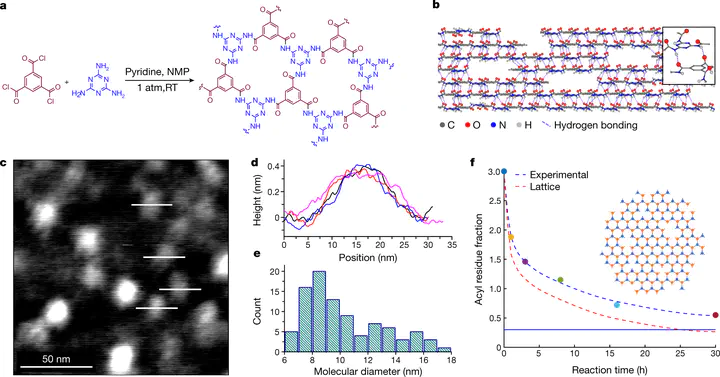
Abstract
Polymers that extend covalently in two dimensions have attracted recent attention as a means of combining the mechanical strength and in-plane energy conduction of conventional two-dimensional (2D) materials with the low densities, synthetic processability, and organic composition of their one-dimensional counterparts. Efforts to date have proven successful in forms that do not allow full realization of these properties, such as polymerization at flat interfaces or fixation of monomers in immobilized lattices. A frequently employed synthetic approach is to introduce microscopic reversibility, at the cost of bond stability, to achieve 2D crystals after extensive error correction. Herein we demonstrate a synthetic route to 2D irreversible polycondensation directly in the solution phase, resulting in covalently bonded 2D polymer platelets that are chemically stable and highly processable. Further fabrication offers highly oriented, free-standing films which exhibit exceptional 2D elastic modulus and yield strength at 50.9 +- 15.0 GPa and 0.976 +- 0.113 GPa, respectively. Platelet alignment is evidenced by polarized photoluminescence centered at 580 and 680 nm from different dipole transitions. This new synthetic route provides opportunities for 2D polymers in applications ranging from composite structures to molecular sieving membranes.